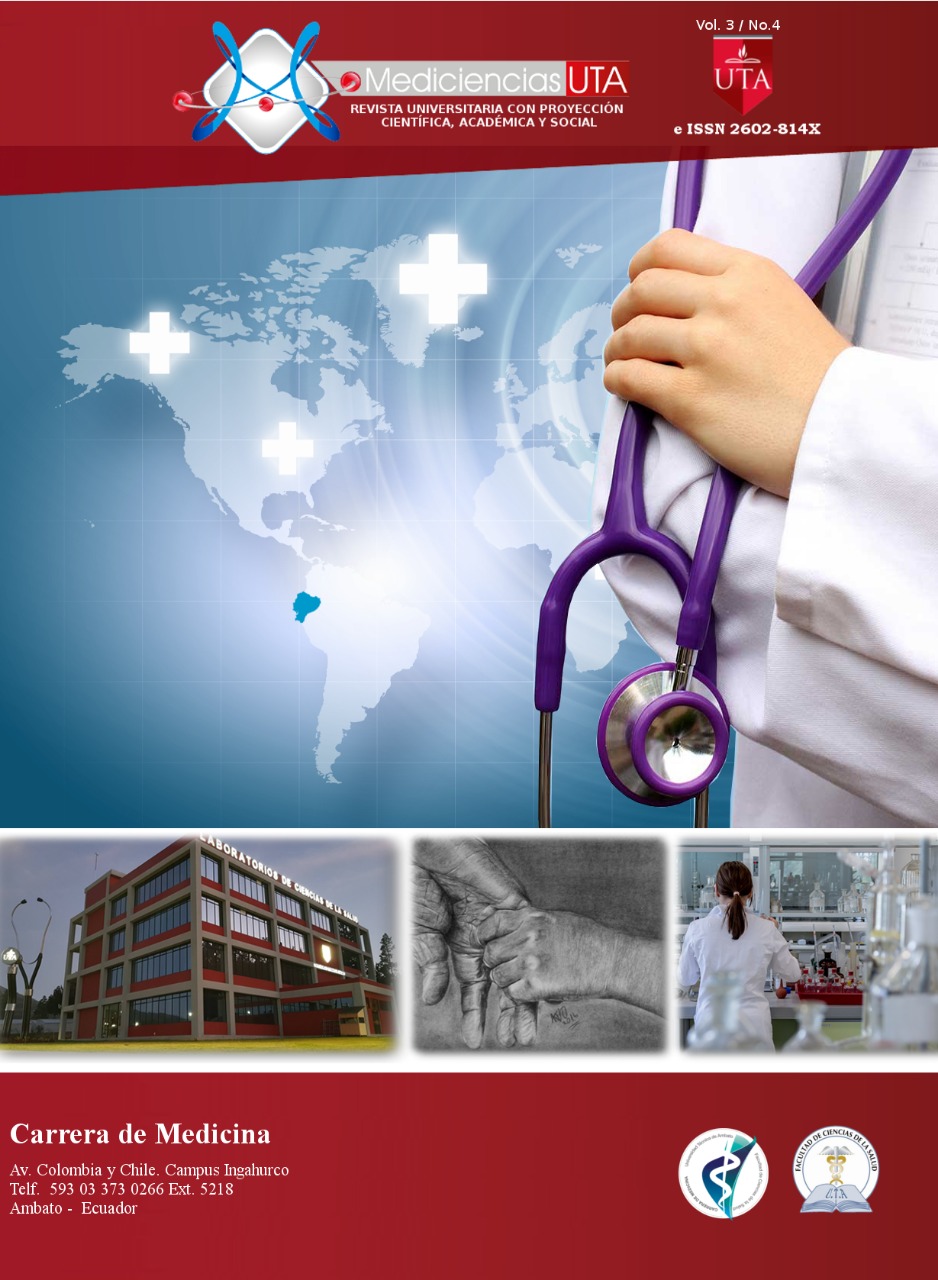Impact of nutrition on epidemiology, epigenetics and clinical of malignant neoplastic diseases.
Main Article Content
Abstract
Introduction: In the contemporary world there is growing evidence of the interrelationship between nutritional factors and the incidence of oncology diseases. 14 million new cases of cancer are diagnosed worldwide each year and 8 million patients die from it. Ecuador does not escape this problem. Addressing nutritional factors in interrelationship with the epidemiological, epigenetic and clinical aspects of the highest prevalence of oncology diseases, with a view to ensuring greater health promotion and prevention of cancer diseaseshighly prevalent, it is alwayswelcome. An updated review of the literature on these topics will be conducted at this symposium with a view to deepening professional knowledge skills and skills in nutritional management with preventive and curative approach to the cancer patient , whichwill improve health indicators.
Objectives: To evaluate the scientific literature about epidemiological, epigenetics and clinical aspect of oncological illness with risk prediction in order to obtain rapid diagnosis and treatment to improve health indicators in population.
Material and methods: A systematic review of the scientific literature published in the period 2000-2019, with triangulation, carried out on nutritional factors and their relationship to the epidemiological, epigenetic and clinical aspects of diseases to ensure greater health promotion and prevention of highly prevalent oncological diseases, which will have a positive impact on population health indicators. Descriptive statistical methods were used and the logical historical method made it possible to determine the chronologicalsequence of the different fundamentals thatunderpin the interrelationship nutrition and cancer with an interdisciplinary and transdisciplinary curative preventive approach.
Results: The theoretical references analyzed made it possible to determine the most relevant aspects of the interrelationship of nutritional factors and cancer, with an emphasis on the Epidemiology, Epigenetics and Clinical of Cancer worldwide and in Ecuador, allof which will contribute increase the skills of professionals in these issues and improve health indicators.
Conclusions: The inter-and transdisciplinary approach to nutritional aspects in interrelationship with the epidemiological, epigenetic and clinical approach of cancer diseases that show greater prevalence, raises the competencies of medical professionals in nutrition and cancer, all of which will help to ensure greater health promotion and prevention of cancer diseases, as well as adequate nutritional management of the cancer patient, with a favorable impact on health indicators.



